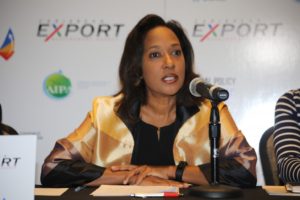
A collaborative study by the International Trade Centre (ITC) and the African Export-Import Bank (Afreximbank) suggests that bilateral trade between Africa and the Caribbean could surge to $1.8 billion annually by 2028 if strategic investments in value addition, trade facilitation, and logistics improvement are prioritized.
Currently valued at $729 million in goods, trade between the two regions stands poised for significant expansion. These findings were unveiled during the launch of the ITC-Afreximbank ‘Strengthening AfriCaribbean Trade and Investment’ project at the 31st Afreximbank Annual Meetings and the third AfriCaribbean Trade and Investment Forum (ACTIF) in Nassau.
The study highlights that the travel and transport sectors hold substantial potential, comprising two-thirds of the projected growth in services trade between Africa and the Caribbean. Key sectors in goods trade identified for growth include minerals and metals, wood, paper, rubber, plastics, processed food, and animal feed.
The primary objective of the project is to stimulate trade and investment activities between Africa and the Caribbean, fostering closer collaboration between their private sectors.
In response to the study, Benedict Oramah, President and Chairman of Afreximbank, underscored the immense untapped opportunities in Africa-Caribbean trade. He emphasized Afreximbank’s commitment to leveraging a project pipeline worth $2.5 billion and an investment portfolio valued at $1.5 billion to harness these opportunities effectively.
Pamela Coke-Hamilton, Executive Director of ITC, emphasized the pivotal role of small businesses in driving and benefiting from increased trade between Africa and the Caribbean. She stressed the importance of prioritizing sectors with high growth potential for development and investment.
Despite shared history and cultural ties, bilateral trade between Africa and the Caribbean remains underdeveloped, comprising less than 3% of total exports. Challenges such as high tariffs, especially on processed goods, and inadequate logistics infrastructure hinder trade growth.
For instance, African exports to the Caribbean are dominated by mineral primary products, particularly crude oil, while the Caribbean primarily exports fertilizers, notably anhydrous ammonia, to Africa.
To address these barriers and boost trade, the project will analyze various tariff liberalization and non-tariff measure harmonization scenarios. These efforts aim to streamline trade flows, reduce costs, and enhance market access for both regions.
The project builds on existing cooperation frameworks between ITC and Afreximbank, focusing on enhancing export capacities through initiatives like the “How to Export with the AfCFTA” Training Programme and supporting national export strategies.
As Africa and the Caribbean navigate recovery from global challenges such as COVID-19, conflict, and climate change impacts, fostering robust trade relations stands as a strategic imperative for sustainable economic growth and resilience in both regions.


